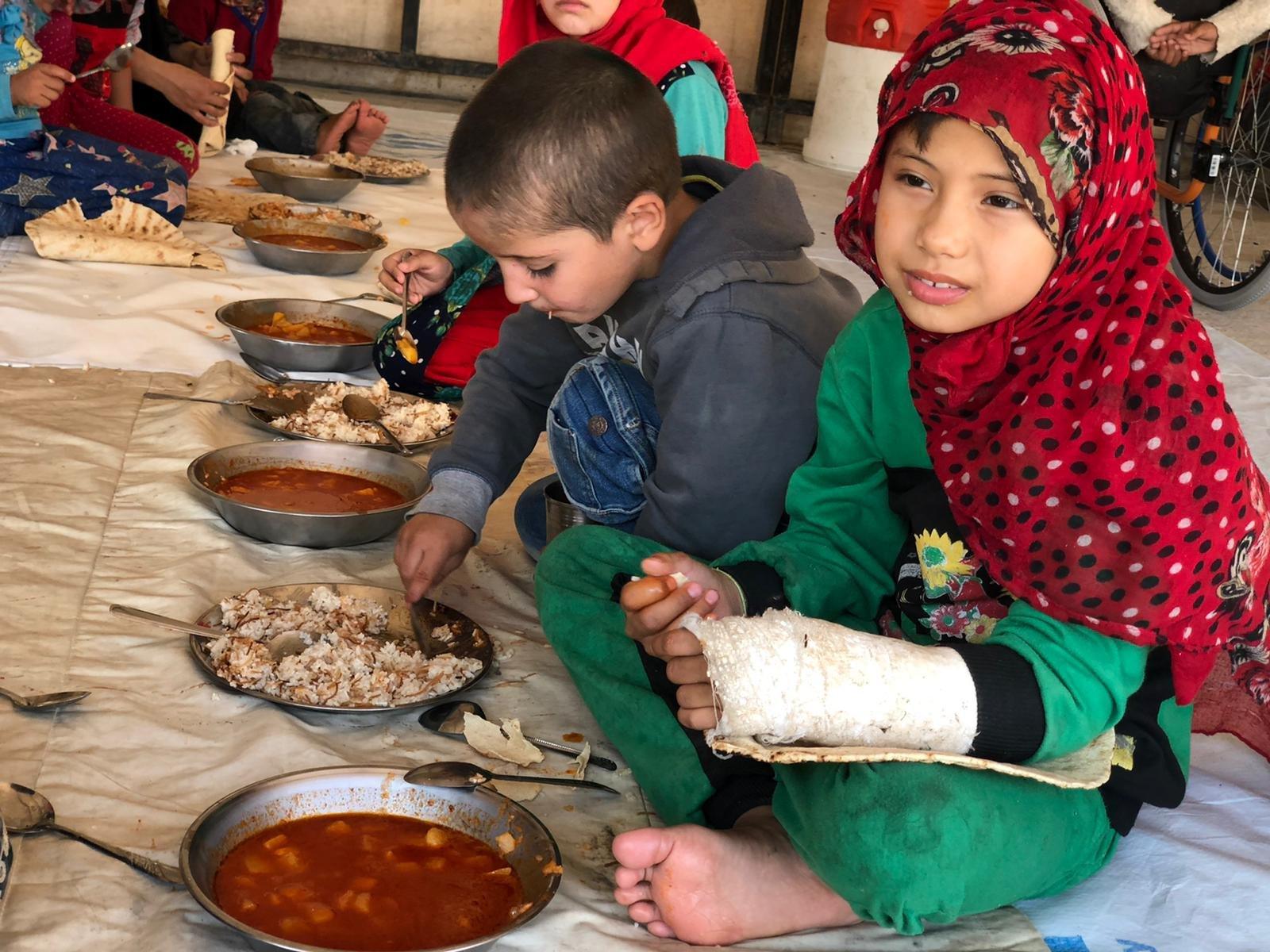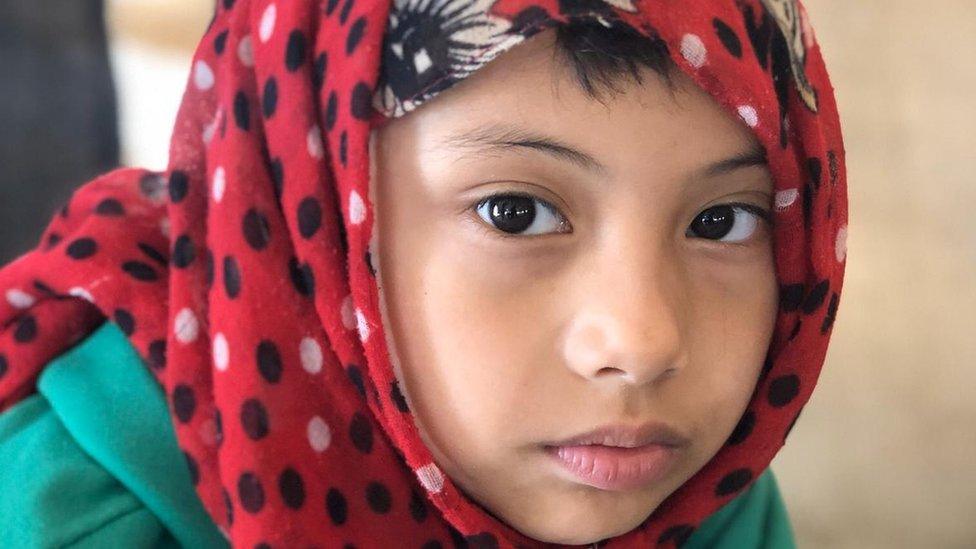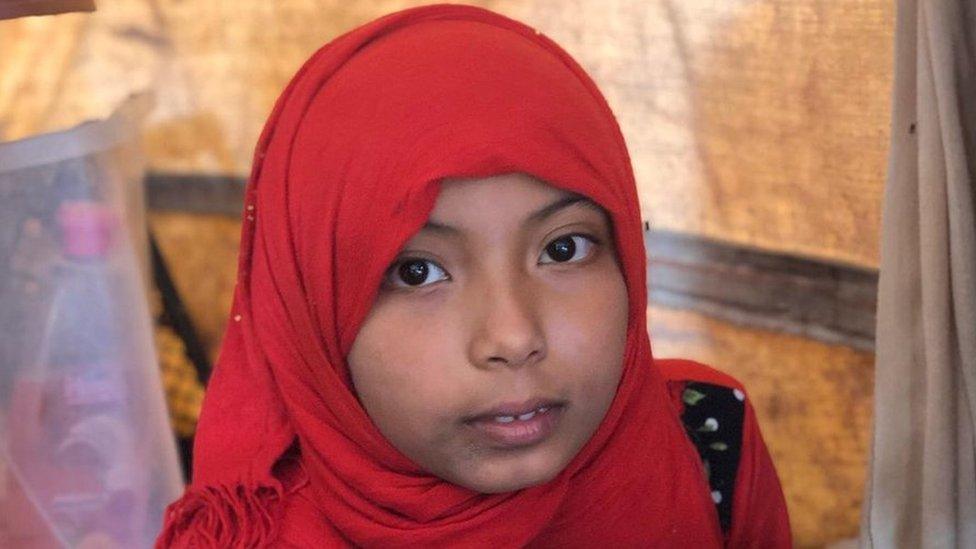Islamic State: How could these children get home?
- Published

The case of three children believed to be from the UK, trapped in Syria after their parents joined the "Islamic State group" and subsequently died, has raised questions about how they can be repatriated.
The children, Amira, Heba and Hamza, were featured in a recent BBC report from a Syrian camp for the families of IS fighters and are now understood to have been moved to the city of Raqqa by the United Nations.
So what's the procedure for repatriating them - and what are the difficulties?
Diplomatic access
Foreign nationals abroad are entitled to consular assistance and this would normally require direct contact with the individuals involved.
The camps in northern Syria holding IS families are currently controlled by Kurdish-led forces whose leaders have repeatedly asked European countries to take back their nationals.
The International Committee of the Red Cross (ICRC) has tried to help by identifying the nationalities of those held in the camps and then directly contacting the relevant embassies or consular officials, but has been frustrated by the lack of action.
Amira, Heba and Hamza are stranded, in danger and they want to come home
Part of the problem is that many countries have closed their embassies in Syria.
"We are just looking at a pretty stark picture of a highly complex situation," Peter Maurer, president of the ICRC said earlier this year.
"Nobody is particularly interested to put structures, processes in place to deal with the issue beyond emergency assistance."
Some host countries have cited security issues and say it's too dangerous to send their officials into a conflict zone.
This is despite journalists having had recent access to the camps, and a visit last month by a UK parliamentary delegation to the largest camp holding families of IS fighters.
A member of the delegation, the Conservative MP Crispin Blunt, said that bringing British citizens back to the UK was "a burden we have to bear" and that children should be prioritised.

Australia said recently it wouldn't take the risk of sending in people to rescue children.
"It is a very dangerous area. We will not be endangering the lives of other Australians. It's that simple," said Foreign Minister Linda Reynolds.
Establishing the right to return
If diplomatic officials do succeed in making contact, the next stage is to establish the legal parenthood and nationality of the child.
But this can be complicated if
the parents' identity documents no longer exist
the child was born to parents from two different nationalities
the child is an orphan with no adult established as a legal guardian
there is no access to DNA testing facilities to establish parenthood
In the UK, the government says it can be extremely difficult to establish the nationality of children.
The Home Office told the BBC: "We look at all evidence to determine nationality and will examine every single case where we are asked for consular assistance, but this process is far from straightforward."
In a report in July, King's College's International Centre for the Study of Radicalisation said only four children had returned to the UK, external, but also pointed out that this figure might not accurately represent the true number.

In February, the then UK Home Secretary, Sajid Javid, told parliament he had sympathy for innocent children caught up in a war zone.
But he added: "If we were to do more to try to rescue these children, we have to think about what risk that places on future children in the UK and the risk that they may be taken out to war zones by their parents."
In the case of Shamima Begum, who was deprived of UK citizenship to prevent her return, the government indicated that her child born earlier this year would remain British.
But the child died in a Syrian refugee camp when he was less than three weeks old.
Afterwards, the UK government said it would have been too dangerous to send officials into the camp where Shamima Begum was detained to bring the child out.
Repatriation to other countries
The UN says that since January, 17 countries have repatriated women and children from the largest camp holding families of IS members.
Russia has brought back between 145 and 200 on organised flights, and several central Asian states have also taken back children.
In May, Kazakhstan organised the return of more than 230 of its citizens - most of them children - from camps in Syria.
Austria agreed to take back two orphaned children recently following DNA tests and a court decision on who would take care of the children once they returned.
Germany has also taken back some children, as have France, Belgium, Netherlands, Denmark, Sweden, Norway and Kosovo.

